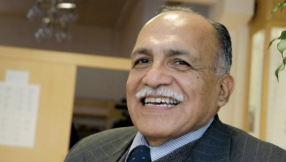African Anglicans Split Over Homosexuality
Three of five dioceses in Zimbabwe had "unanimously agreed" to sever ties with dioceses in the Central African province, saying it will not "stand with homosexuals," a cleric at Harare diocese, who spoke on the condition of anonymity, told Agence France-Presse.
The cleric noted that according to the Diocesan Act adopted by the Harare diocese in August and put into effect on Aug. 4, the Zimbabwe church body will "dissociate and sever relationship with any individual, group of people, organisation, institution, diocese, province or people who indulge in or sympathise or compromises with homosexuality."
On Saturday, the provincial synod of the four national church bodies that make up the Anglican Communion's Central African province drafted a resolution reaffirming its opposition to homosexuality. The Anglican province of Central Africa is comprised of Botswana, Malawi, Zambia and Zimbabwe.
However, the Harare diocese - still not convinced by the resolution as the province has been accused of failing to censure some bishops dabbling with homosexuality -withdrew from the province, according to The Herald, a publication of the government of Zimbabwe.
Once one diocese withdraws, the province becomes null and void and will have to be reconstituted under a new name and structure, according to the Standing Orders of the Province of Central Africa, as reported by The Herald.
"We have taken a position as a diocese and the position has been necessitated by the issue of homosexuality," Bishop Nolbert Kunonga of Harare told The Herald. "We totally reject homosexuality; it is an abomination, it is totally against the law of God, and it diminishes the dignity of the human being.
"We also believe in the supremacy of the Scriptures - the primacy of the Scriptures - and there is nowhere where homosexuality has been condoned," he added.
Currently, homosexuality is illegal in Zimbabwe. Sexual acts - including holding hands, hugging or kissing - between two people of the same sex are considered a criminal offense.
"So when we look at all the angles - the religious life, the cultural side, the political system in which we operate - there is no institution that embraces homosexuality," said Kunonga.
In response, Malawian Archbishop Bernard Malango, who serves as the Anglican head of the Central Africa province, has expressed his stance against gay bashing and stated that he believes that "gays and lesbians are God's people so that they deserve as much love and respect as do heterosexuals" - a view held by the majority of Christians.
However, like many other conservative Christians, Malango is opposed to the consecration of gay clergy, noting that homosexuality should not be encouraged as it is sin according to the Bible.
Malango was among the African Anglican primates who vehemently opposed the consecration of openly gay bishop Gene Robinson as bishop of New Hampshire.













